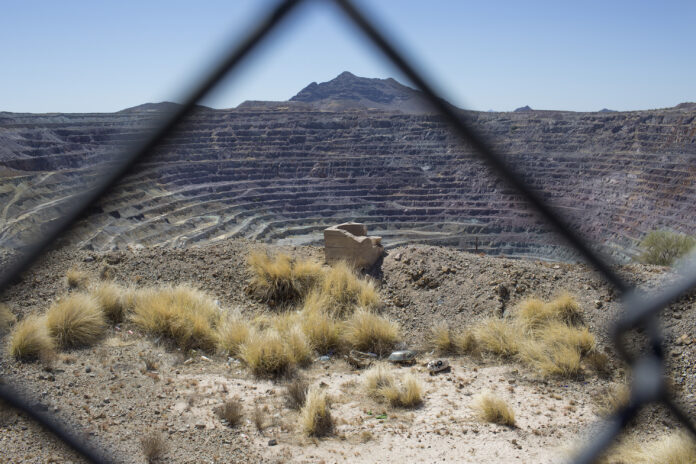Too few Americans realize that control over mineral production will determine our country’s future. Our daily life relies on mining and minerals, but most of these minerals are either mined or processed overseas. It is possible to produce them here, but onerous federal rules make it extremely difficult. We cannot sit idly by and hope our U.S. mining industry can cut through the red tape currently strangling it. We must embrace domestic mining and processing before it is too late.
Minerals like gold, silver, copper, aluminum, lithium, zinc, platinum, and dozens of others are vital components of the products we use every day. From our cars to our cellular phones to the power plants that produce our energy, mining provides the materials that make modern life possible. These minerals are also vital to countless aspects of our national defense.
The minerals we need exist in the U.S., often in abundant quantities. But it is difficult to mine and process them here, so we import them. Worse yet, we rely heavily on unfriendly countries like China, which have not hesitated to abuse their stranglehold over the mineral supply chain. Our need for these minerals will only grow over time, giving China significant leverage over us.
Beijing has a history of weaponizing the mineral supply chain. This past August, China restricted the export of gallium and germanium, minerals necessary for semiconductor production and national defense products.
It is only a matter of time before China decides to punish the U.S. and our allies again by holding minerals hostage. That will even apply to minerals that are mined in the U.S. but processed in China, like copper.
The U.S. will be stronger and the world more stable if we mine and process the minerals we have right here in our country.
Unfortunately, any efforts to do so face significant obstacles. The Biden administration is one of the biggest. Under the administration’s direction, a working group on mining regulations released recommendations that, if implemented, would transition mineral rights to a leasing program and add a dirt tax to every shovelful of ore, regardless of the value of the mineral. This would add years to the already lengthy permitting process and stifle investment in mining projects. The federal government should incentivize domestic mining and remove the red tape constraining it, not enact new regulations that will make an already challenging process substantially worse. Fortunately, these recommendations would largely require congressional action, and I will strongly oppose any measures that would make domestic mine permitting more laborious or expensive.
Andrew Lichtenstein/Corbis/Getty Images
If you don’t follow the industry closely, you may be surprised at just how difficult it is to mine and process our abundant mineral resources. Before any mining project begins the formal permitting process, it is immediately tied up in red tape. The average timeframe to gain a permit is seven to 10 years. And that does not include the time invested prior to the initial application or the inevitable litigation from environmental extremists.
One example of such litigation is the recent Rosemont decision in the Ninth Circuit Court, which changed the interpretation of long-established mining law. The new Rosemont standard hampers the industry while making mining significantly less efficient and cost-effective.
There is bipartisan support to correct the error of the Rosemont decision. With Senator Catherine Cortez Masto (D-Nev.), I introduced legislation to restore federal mining law’s intent and correct the courts, but this legislation’s passage is only the first step Congress needs to take. We must overhaul the federal government’s permitting process for mines if we want the U.S. to have any chance to secure its supply chains and compete with China.
It’s becoming increasingly clear that mining reform should be a national priority. U.S. car companies are requesting that the Biden administration speed up permitting for mining. The Department of Defense also recognizes the danger we face, which is why it is awarding grants to critical mineral mining projects. One of them is the Stibnite-Gold Project in central Idaho, which will be the sole domestic source of antimony, a mineral critical to national defense.
Every aspect of our society and security relies on processed minerals and would therefore benefit from expedited permitting and easier access. We cannot afford to wait until China reduces or even cuts off our access to critical minerals.
It is time for America to see the power of the U.S. mining industry, invest in it, and secure our supply chains. The technology we depend on every day is only possible because of mining. To ensure not just our economic success but our national security, Congress must revamp our mining laws and substantially reduce irrelevant regulations.
Jim Risch, a Republican, is the junior United States senator from Idaho.
The views expressed in this article are the writer’s own.
Uncommon Knowledge
Newsweek is committed to challenging conventional wisdom and finding connections in the search for common ground.
Newsweek is committed to challenging conventional wisdom and finding connections in the search for common ground.


